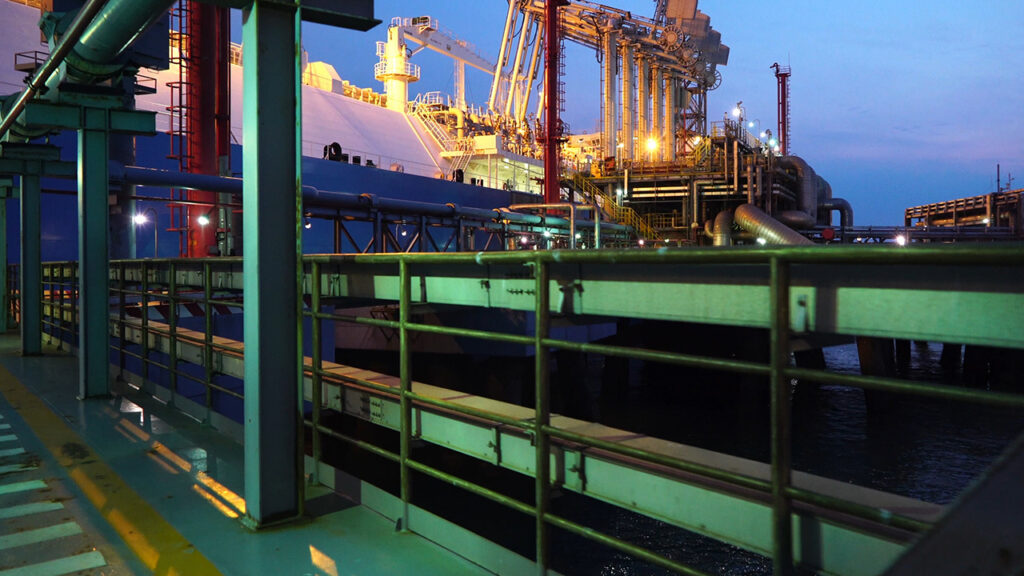Arrest of the SAM HAWK: vessel arrest based on a US law maritime lien in a bunker trader’s contract terms upheld in Australia, October 2015
In a recent decision of the Federal Court of Australia (FCA)1, a bunker trader successfully relied on a term in their sale contract that provided, among other things, that a maritime lien in accordance with the laws of the US and the State of Florida attached to the vessel stemmed in any port outside the US could be enforced in any country where the vessel was present. The FCA found the sale contract provision to be an adequate basis to establish jurisdiction to commence an in rem action and proceed with an arrest of the vessel – notwithstanding that a claim in respect of the sale or supply of bunkers does not give rise to a maritime lien under Australian law.
Pivotal to the approach taken by the FCA in recognising that jurisdiction could be established by a foreign maritime lien was a finding by the Court that the Privy Council’s decision in the Halcyon Isle2, namely that the existence of an asserted maritime lien is to be determined in accordance with the law of the forum of the arrest proceeding, does not represent the state of the law in Australia. Consequently, Australian courts now have jurisdiction to consider a claim for a maritime lien arising in other jurisdictions for the supply of bunkers.
Another point of interest is the finding that the issue regarding the existence of a contract between the bunker trader and the vessel owners, including the associated issue of whether a time charterer has authority to bind an owner to a contract for the supply of bunkers notwithstanding there being no authority to do so in the charter party, is a matter concerning the merits of a claim rather than jurisdiction and therefore is not an issue for determination in respect of an application to set aside an arrest.
The decision has potentially broad implications for vessels trading to Australia, which extend beyond claims by bunker traders or suppliers who are able to rely on a maritime lien in support of a claim for payment in respect of bunkers. By accepting that jurisdiction in rem can be established in Australia through a claim giving rise to a maritime lien under foreign law, the court has expanded the grounds for arresting vessels in Australia. This, in conjunction with the very limited scope for setting aside arrests in Australia and the entitlement to arrest in Australia to obtain security for claims to be determined elsewhere, makes Australia an ‘arrest favourable’ jurisdiction.
Facts
The SAM HAWK (vessel) was time chartered to Egyptian Bulk Carriers (EBC) under a charter party that required EBC to arrange and pay for bunkers, and did not authorise EBC to bind the vessel or the owners to any contract for the supply of bunkers or with a maritime lien in respect of the supply.
EBC placed an order for a stem with Reiter Petroleum Inc (RP), a Canadian company, which, in turn, coordinated the supply through an intermediary and the physical supplier, Socar Marine (Socar). The terms of the bunker supply contract were negotiated between RP and EBC and did not involve nor were they notified to the owners. Those terms, which were otherwise governed by Canadian law, included an express provision that the question of the existence of a maritime lien would be governed by the laws of the US.
Prior to receipt of the bunkers, the owners of the vessel issued ‘no liability’ notices both to Socar and to the master of the bunker barge from which the bunkers were to be stemmed. The letter issued to the barge master specifically stated that the bunkers were only being accepted on condition that neither the owners nor the vessel would be held responsible for payment.
The invoiced amount for the bunkers was never paid by EBC. RP commenced in rem proceedings against the vessel and it was arrested in Albany, Western Australia on 5 November 2014.
Issues
The claims against the owners to establish jurisdiction in rem were twofold:
- RP argued in respect of the existence and enforcement of a maritime lien, that the bunker supply contract was subject to Canadian or, alternatively, US law which recognise the supply of “necessaries”, including bunkers, to a ship as giving rise to a ‘maritime lien’. It was also argued that under the laws of Canada it is permissible to contractually incorporate a maritime lien of the US. Despite Australian law not recognising supply of necessaries as a maritime lien, RP submitted that the application was still one which was a “proceeding on a maritime lien” for the purposes of s15 of the Admiralty Act 1988 (Cth) (Admiralty Act) on the ground that a claim based on a maritime lien is a substantive rather than simply a procedural claim.
- In the alternative, RP sought to argue that the owners were bound by the bunker supply contract and were therefore a ‘relevant person’ for the purposes of s17 of the Admiralty Act through either the agency or ostensible authority of the time charterer.
The owners applied to have the arrest set aside for want of jurisdiction or, alternatively, summarily dismissed on the grounds that:
- The law to be applied in determining which categories of claim amount to a maritime lien under s15 of the Admiralty Act is the law of the forum of the arrest, namely Australian law, and that as Australian law does not recognise the supply of ‘necessaries as giving rise to a maritime lien, RP could not establish jurisdiction under s15 of the Admiralty Act and therefore was not able to arrest pursuant to the claim in respect of the asserted maritime lien.
- Section 17 of the Admiralty Act requires the arresting party to demonstrate that the ‘relevant person’ was in possession or control of the vessel at the time the claim arose and was the owner at the time the in rem proceedings are commenced. RP could not satisfy the burden of establishing that that the owners were a “relevant person” for the purposes of s17 and liable in respect of the claim.
- Alternatively, if the court was minded to find the claims made out in respect of s15 and s17 on the face of it adequately established jurisdiction, they should nonetheless be dismissed on the basis that they were bound to fail as even if Canadian or US law applied, any maritime lien had been extinguished or rebutted by the fact that the owners had issued two “no liability” notices.
Decision
Maritime lien
In relation to the jurisdictional argument concerning the existence of a maritime lien capable of engaging s15 of the Admiralty Act, Justice McKerracher stated at the outset that, in his opinion, the Halcyon Isle “does not represent the state of law in this country” and examined in detail judicial and commentators’ criticisms of the majority reasoning in that judgment and how Australian law had moved away from the decision in the development of the distinction between substantive and procedural matters.
Ultimately, his Honour’s reasoning for the departure from the English decision was that the existence of a maritime lien should be considered a substantive matter, not a procedural matter. This finding was justified by reference to the High Court of Australia’s opinion in John Pfeiffer v Rogerson3 that “matters that affect the existence, extent or enforceability of the rights or duties of the parties to an action are matters that, on their face, appear to be concerned with issues of substance, not with issues of procedure”.
His Honour also found that the question of extinguishment or rebuttal of a maritime lien would depend upon which law applied to the bunker supply contract, Canadian or US law – a complex issue involving the application of the rules of Australian private international law, requiring additional expert evidence. Accordingly, as there were important matters to be resolved at a final hearing he declined to give summary judgment against RP.
Relevant person
In relation to both the issue of jurisdiction and summary judgment surrounding whether owners were a ‘relevant person’, the FCA found that, on the face of the pleadings, RP had demonstrated that it had an arguable claim, the merits of which should be properly aired during a full hearing.
Comments
His Honour commented that it “is easy to understand” why the claim was “very much in dispute on the basis that the owner contends that no contract which could bind the vessel’s owner, SPV Sam Hawk Inc, has been or can be proven”. However, he was satisfied that RP had fulfilled its burden for establishing jurisdiction, in respect of both the maritime lien and ‘relevant person’ claims. Consequently, the dispute should be heard in full.
As stated earlier, the decision reinforces Australia’s position as an arrest favourable jurisdiction, as claims giving rise to maritime liens in other jurisdictions are now capable of establishing jurisdiction in Australia for the purposes of arrest. Notwithstanding that the substantive claims may not ultimately succeed when determined on the merits, the increased scope for commencing in rem proceedings to found the basis for a vessel arrest, and thereby obtain security from vessel owners, provides a very useful tool for potential claimants.
Not surprisingly arrests of vessels in Australia based on claims asserting US law maritime lien provisions are now being actively pursued in the FCA.
Associates Naraya Lamart and Simon Gamboni assisted with this briefing.
Footnotes
- Reiter Petroleum Inc v The Ship “Sam Hawk” [2015] FCA 1005
- Bankers Trust International Ltd v Todd Shipyards Corporation (The Halcyon Isle) [1981] AC 221
- (2000) 203 CLR 503
Download a PDF version of ‘Arrest of the SAM HAWK: vessel arrest based on a US law maritime lien in a bunker trader’s contract terms upheld in Australia, October 2015’







-1024x576.jpg)



